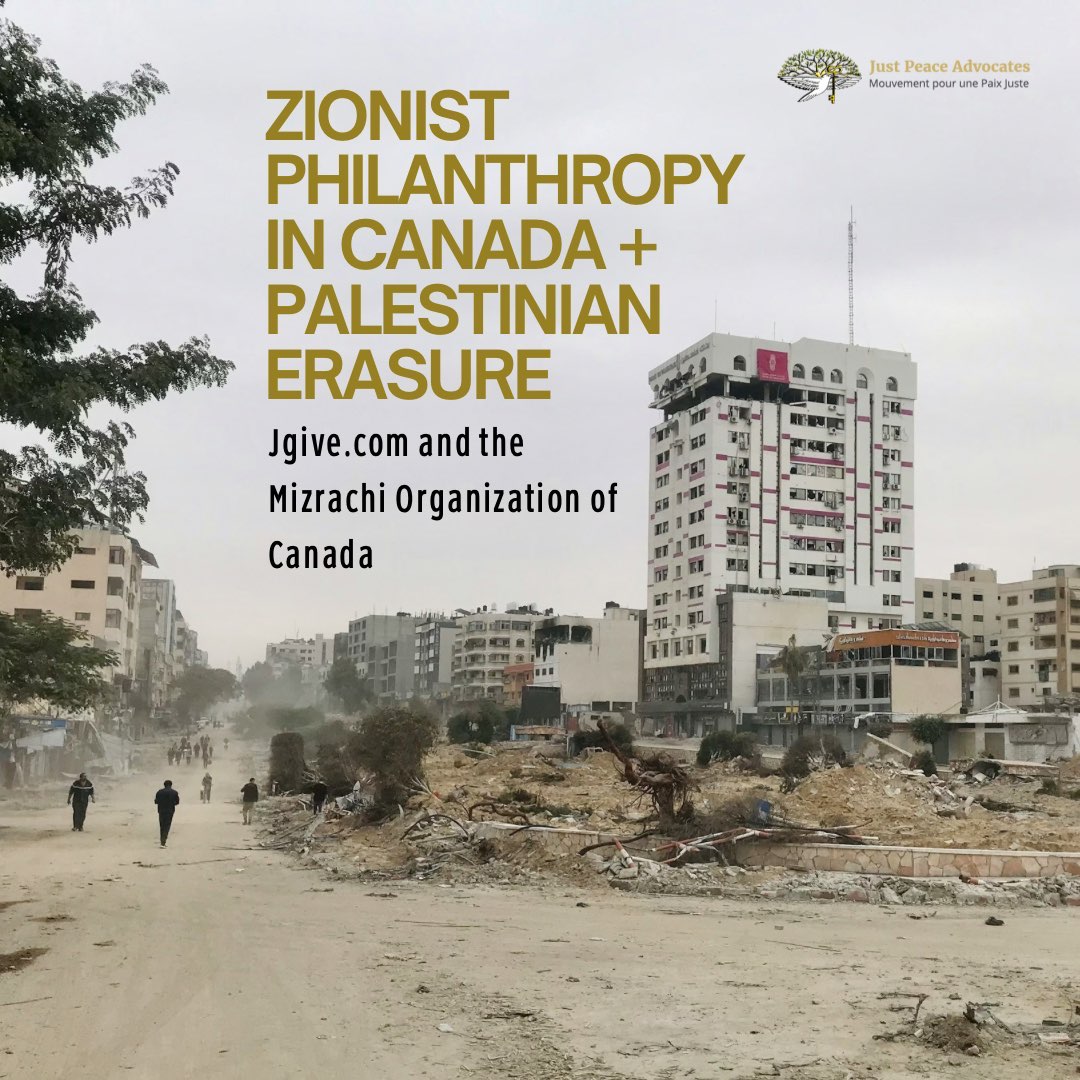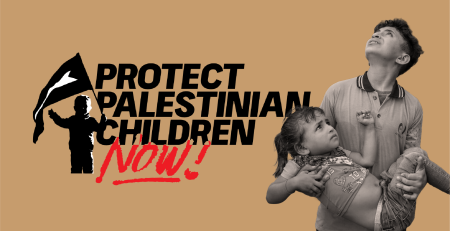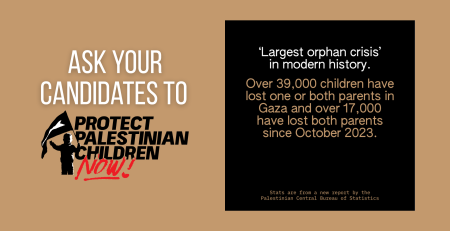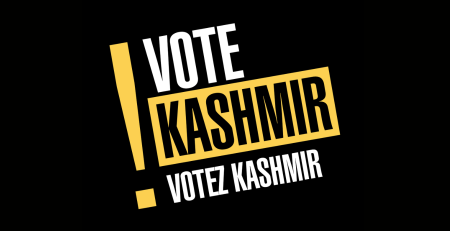by Dr. Miles Howe, June 11, 2024, published initially in State Crime Journal
Original publication:
Author(s): Miles Howe 1
Publication date Pub: 11 June 2024
Journal: State Crime Journal
Publisher: Pluto Journals
Keywords: Charity, Zionism, philanthropic crime, Palestinian sovereignty, Canada
Abstract
This article examines the phenomenon of Zionist Philanthropy and the synchronicity of tax-deductible gift-giving with Palestinian erasure. Raising questions concerning regulator complicity in Canada, the case study of the Mizrachi Organization of Canada, a popular Zionist charitable organization which arguably mislabels its charitable activities, is investigated. At stake are questions surrounding the arbitrary enforcement of Canadian tax law, international law, and where the Canadian state sits in regard to conducting charitable activity in the Occupied Territories.
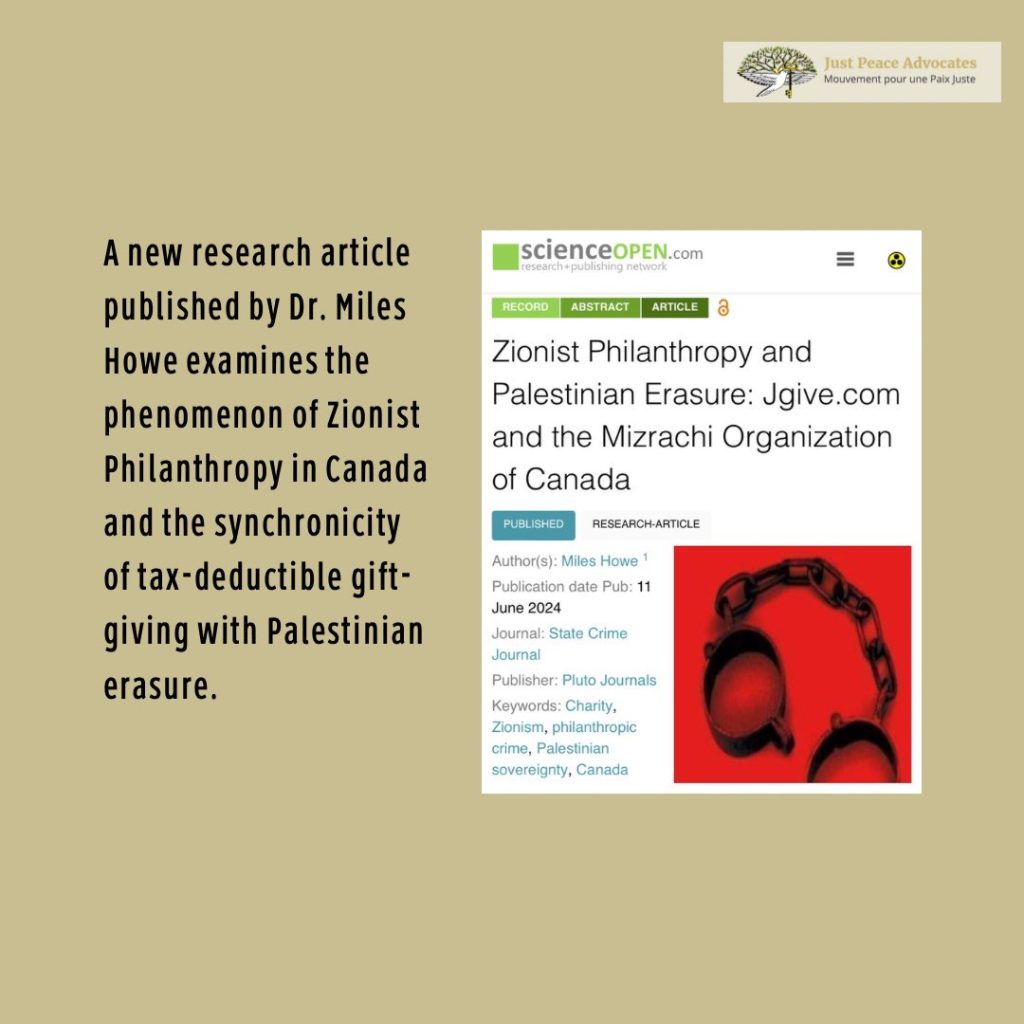
Main article text
Introduction
At a mid-January 2023 webinar titled “Colonialism is not Charity: Defunding Palestinian Racism”, panellists presented findings that outlined the movement of millions of dollars in tax-deductible donations, originating from elite class, Canadian, private foundations, into Israel (CFPI 2023). Utilizing standard social network analysis complemented by a co-developed methodological add-on involving multi-decade analysis of tax return data, acquired through Access to Information requests, Howe and Sylvestre (2022) were able to isolate three, synchronously linked, charitable organizations, and chart the flow of money moving into – and out of – these charities. Howe and Sylvestre found these three Canadian charitable organizations operated under a pattern of multi-year dormancy, followed by a period of initialization, in which revenue in donations shifted from near-zero dollars per year to millions.
In the three cases, the charitable organizations under investigation were sending charitable donations into the hands of thousands of Israeli intermediaries, the number of which was deemed impossible to direct and control, as required by the Canadian charity sector regulator, the Canada Revenue Agency (CRA). When confronted with regulator pressure, rather than comply with the Income Tax Act, the first charitable organization in the synchronous chain ebbed sharply in received donations; donations appeared to shift en masse to the next, newly initialized, charitable organization in succession. In describing this pattern of transgressional activity, likening the phenomenon to the disposability of “burner phones” utilized and discarded towards evading traceability in criminal activity, Howe and Sylvestre coined the term “burner charities”.
The “burner charity” phenomenon was initially theorized as a philanthropic crime of the powerful, insofar as the activity appeared to be geared almost exclusively towards illegally moving money from private foundations – and the Canadian corporate and family fortunes attached to them – into Israel. These burner charities, despite being at their respective peaks among the most successful charitable organizations in Canada, were “low profile” and operated out of private, residential, addresses. They had no public profile, no website, no social media footprint, and no discernible fundraising campaigns. Yet hundreds of unique private foundations attached to the Canadian elite class were utilizing the burners to funnel millions of dollars from Canada into Israel.
Co-panellists at the webinar focused their respective presentations on the activities of another Canadian charitable organization, the Mizrachi Organization of Canada. Collectively, co-panellists had lodged five, unique, complaints with the CRA concerning the activities of the Mizrachi Organization, specifically as it pertained to its issuance of charitable tax receipts, in Canada, in support of Israeli charities working to bolster illegal Israeli settlement activity in the Occupied West Bank. Post-webinar, I applied the methodology outlined in Howe and Sylvestre towards gathering tax data on the Mizrachi Organization. Charities in Canada are obliged to report money received from – and given to – other charitable organizations. Charities are also required to report, by name, the national and international intermediaries/agents to whom they gift money. The effect is that one can chart money flowing into – and out of – charitable organizations, as well as map out the recipients of a charitable organization’s donations. Going over two decades of data for the Mizrachi Organization, I discovered a pattern of financial activity that appeared at once similar, yet noticeably contrasting, to the tax data observed in Howe and Sylvestre’s inspirational research.
Private foundations were donating to the Mizrachi Organization, collectively in the millions of dollars per year. But elite class funding via private foundations, while accounting for a significant percentage of the Mizrachi Organization’s annual revenue, only captured one aspect of the organization’s donor profile. Millions of dollars per year in donations also originated from unique, individual donors; when taken over a multi-year period, these individual, private, donations accounted for the majority of the Mizrachi Organization’s cumulative revenue. While it was not possible to trace the individual donations to their source due to privacy regulations, the number of private, individual, donations suggested that the Mizrachi Organization, overtly Zionist in its political orientation and high profile in its fundraising campaigns, held mass appeal among the broader Canadian Zionist community. In Howe and Sylvestre, the burner phenomenon was epitomized by the movement of elite class donations, frequently in the millions of dollars, through charitable organizations, without any public profile, into Israel. The charitable organizations themselves had no websites, mission statements, or public fundraising campaigns; run out of private residences, they appeared to operate in the singular purpose of moving wealthy Canadians’ money out of the country and into Israel. Without recourse to any other data surrounding donor motivation, Howe and Sylvestre resorted to the crime of the powerful analysis in theorizing the burner phenomenon. The broad scope of the Mizrachi Organization’s funding profile, along with its unabashedly public endorsement of Zionist ideology, however, eclipsed Howe and Sylvestre’s earlier analysis.
This article moves forward in five parts. First, moving beyond the crime of the powerful analysis, I consider the mass appeal of charities such as the Mizrachi Organization of Canada, which suffuse a Zionist ideology to traditional Judaic spiritual duties intended to buttress social safety networks and alleviate poverty. Second, I investigate the corporate structure and operations of the Mizrachi Organization of Canada, towards situating the Mizrachi Organization within a philanthropic framework that, via a misrepresentation of its charitable activities, operates outside of the letter of Canadian charitable tax law. Third, I situate the Mizrachi Organization of Canada within a wider, international web of Zionist philanthropic organizations that work to facilitate and incentivize diasporic donations to Israeli charities by issuing tax receipts in a donor’s home country. Fourth, the activities of one of the Israeli charities in receipt of these international donations – Regavim – and its ongoing efforts to delegitimize Palestinian assertions of territorial sovereignty, are considered. Finally, the legal implications – within a Canadian and international context – of allowing the Mizrachi Organization to operate with impunity are addressed.
Zionist Philanthropy
Academic discourse is prone to treating Zionist Philanthropy as a model case study of adaptability in a shifting, increasingly individualized, worldview that ails the global charitable sector (see Lerner 2011; Friedman and Kornfeld 2018; Nissim 2018; Schmid 2022). Exceptionally, Lila Berman (2020) has specifically charted what she terms the American Jewish Philanthropic “complex” with an eye towards exploring systemic economic malfeasance, but draws short of critiquing the Zionist motivations attached to this network. Berkowitz (1996) suggests the academic hesitancy to critically engage with Zionist Philanthropy is at once due to the movement-funded nature of many of such studies, as well as the understandable, professional, reservations in critiquing a minority group that has traditionally been maligned and denigrated, specifically along financial tropes.
Although Snider (2000) has succinctly positioned philanthropy alongside police and prisons as core state responses to the neoliberal-driven abandonment of the “welfare state”, a key, causational, role of Zionist Philanthropy in funding – and “philanthropizing” – mass social harm against Palestinian peoples, specifically, remains understudied. I suggest that Zionist Philanthropy – as the global fundraising arm of the ongoing project of the Judaic command and conquer of biblically conceived Israel – eclipses Snider’s rather wholesale explanation of philanthropy as a state-driven response to neoliberal-driven privatizations of the social safety net. Rather, Zionist Philanthropy promotes and facilitates, with state collusion providing tax-deductible status, financializing the erasure – narratively and figuratively – of the Palestinian people from the territorial boundaries of what Zionism conceives of as biblical Israel. All the while, Zionism links this project of dispossession and erasure with one’s spiritual duty as a practitioner of the Jewish faith (Finkelstein 1995).
Further, although I do not disagree with analyses that point towards the existence of an elite class with significant economic holdings that allow for an oversized philanthropic “footprint”, in terms of influencing social service priorities within liberal capitalist states (see Gilmore 2017; Elson, Fontan, and Stauch 2018; King and Osayande 2017), mere class analysis undershoots the mark in analysing Zionist Philanthropy. Doubtless, an elite Zionist class does make use of private foundations sheltering significant fortunes from home-state taxation which is then moved out of diasporic, home-state, tax systems and into Israel. Howe and Sylvestre’s earlier work may well point the way towards identifying this trend in Canada. But the Zionist project is not an elite-specific phenomenon, but, rather, is one that strives for mass appeal within the Judaic and increasingly the Evangelical community. Again, while not negating class differentials among the diasporic Zionist community, and while not negating resistance working to reinvigorate the Judaic faith to its Talmudic roots (for example, Aronson 1980), I argue that Zionist Philanthropy strives to present itself as not only a duty to financially support Israel, but as a ground-up initiative, available and required of all practitioners of the Jewish faith.
In the following section, I present the specific case study of the Mizrachi Organization of Canada, the Canadian arm of a wider Zionist, philanthropic, network that interweaves the act of funnelling money into Israel – and the elimination of Palestinian claims to the territorial sovereignty within biblical Israel – into a Judaic duty that conceives of its actions as not only spiritually motivated, but tax deductible.
The Mizrachi Organization of Canada
There are three types of registered charities in Canada: charitable organizations, public foundations, and private foundations. Upon registration, the Canada Revenue Agency assesses a corporation’s structure, legal objectives, sources of funding, and how it operates, then assigns a designation under the Income Tax Act.
Public and private foundations are generally concerned with issuing grants and charitable donations to other charities; private foundations specifically are frequently, but not exclusively, associated with family or corporate fortunes. A charitable organization, however, is expected to conduct most of its own charitable activities, and is expected to spend more than half its yearly income on developing and administering programmes aligned with its self-stated legal objects (Government of Canada 2023). Germane to this investigation, charitable organizations may gift funds to other qualified donees or have a non-qualified donee/intermediary or grantee administer some of its programming as an agent, provided the intermediary or grantee has a structured arrangement in place and can demonstrate control and direction over the handling and dispersal of the gifted funds (CRA 2023). Using an international intermediary or grantee is done on the justificatory grounds that the intermediary/grantee has important skills, resources, and/or on-the-ground connections towards maximizing operational impact in the non-Canadian landscape. The CRA requires that a charitable organization have a structured arrangement in place with all intermediaries and grantees, which, if requested, will serve to demonstrate control and direction over the funds which it disperses (CRA 2020).
Documented demonstrability of direction and control of funds and purpose is key; insofar as common law in Canada pertains to agency, the operations of one’s designated agents amount to the operations of the charity itself (Hayhoe 2010). The Canadian-based charity cannot simply accept tax-deductible donations, send this money overseas, and claim to be doing charitable work. The Canadian charity must be able to account for the money, and it must demonstrate that the intermediary or grantee is carrying on the Canadian-based charity’s self-stated charitable purpose (CRA 2023). Canadian charities are required to publicly disclose, in a yearly T1236 Form, by name and dollar amount, the intermediaries to whom they give funds (CRA 2020). While a newly implemented guidance document (CRA 2023) theoretically allows for more leniency in reporting requirements of charitable organizations allocating funds to grantees, the document itself is not yet law, nor is it to be retroactively applied.
Established in 1979, the Mizrachi Organization of Canada is a charitable organization, whose self-stated legal objective is the “relief of poverty”. According to its charitable tax returns, between 2018 and 2022 the Mizrachi Organization cumulatively reported over CAD $37.5 million in revenue, or just under CAD $8 million per year (CRA 2024). Speaking to the mass, trans-class, appeal of the Mizrachi Organization among the Canadian Jewish community, revenue received by the Organization from other registered charities (i.e. public and private foundations) varied by year, from a high of 61.9 per cent in 2020, to a low of 23.9 per cent in 2019, while the percentage of revenue received from individual, private, donors, varied by year from a high of 74.5 per cent in 2019, to a low of 33.1 per cent in 2020 (ibid.).
On a website adorned with block letters stating: “The Religious Zionist Movement” and “Israel at War”, the Mizrachi Organization claims that for decades it has “been inspiring the world with the empowering message of religious Zionism”, with “an eye on inspiring and calling to the action the new generation of religious Zionists in Canada” (Mizrachi 2023a). The Mizrachi Organization hosts international – and specifically Israeli – speakers and events in Canada, provides links for bat mitzvah workshops, offers membership in something known as the “Mizrachi Operational Volunteers: Israeli Lifeline”, and offers burial plots for sale in Israel for Canadian Jews, among other services (ibid.). The Mizrachi Organization’s website also offers Canadian donors the opportunity to give directly to what it calls “Projects in Israel” (Mizrachi 2023b). These “Projects” include dozens of would-be Israeli recipients, including yeshivas, summer camps, and initiatives for Israelis deemed at-risk or otherwise in need. Staff at Mizrachi confirm that Canadian donors who choose to donate to any of these “Projects in Israel” are provided with a Canadian tax receipt (J. Gross, personal communication, 11 August 2023).
From a Canadian legal perspective, the categorizing of the relationship between the Mizrachi Organization and these “Projects” is arguably a mislabelling that contravenes the Income Tax Act. These “Projects” are, in fact, Israeli-based organizations, registered as legal entities in Israel. If they are receiving donations from the Mizrachi Organization, then they are acting as the Mizrachi Organization’s non-qualified donees/intermediaries. As such, each of these Israeli organizations should have a contractual agreement/relationship in place with the Mizrachi Organization. From a reporting standpoint, the Mizrachi Organization should disclose, in its yearly T1236 Forms, the names of these intermediaries, along with the dollar amount of donations they are in receipt of per year. Yet, despite dozens of Israeli-based “Projects” marketed on its own website, the Mizrachi Organization does not list any Israeli-based intermediaries in its T1236 Forms, between 2018 and 2022.
A second reporting option for Canadian charities transferring money to international recipients is to make publicly available a list of recipients, by name, under their “Schedule 2 – Activities outside Canada”. Again, however, funding arrangements must be in place with recipient individuals or organizations, towards ensuring adequate direction and control over donations. Between 2007 and 2021, the Mizrachi Organization listed having transferred over CAD $46 million to activities outside of Canada. In its 2020 returns, the Mizrachi Organization did provide the names of international individuals or organizations in receipt of CAD $177,001 (CRA 2023a). This, however, leaves the vast majority of the Mizrachi Organization’s overseas activities simply listed as going to “Israel”, without names or dollar amounts for specific recipients.
Importantly, in its 2022 return the Mizrachi Organization provided an extensive list of Israeli recipients, naming hundreds of unique, Israeli-based, organizations, cumulatively in receipt of over CAD $5.8 million (ibid.). While arguably bringing the Mizrachi Organization into some measure of adequate reporting, I see the 2022 return as raising two important issues. First, the fact that over CAD $5.8 million in transfers are listed in 2022 arguably highlights the lack of transparency – along with, one might argue, the lack of regulator capacity/oversight – in the preceding years, when tens of million in tax-deductible donations were allowed to simply be funnelled into Israel without naming any recipients (CRA 2024).
Second, the 2022 return contains the names of numerous legally problematic recipients. The Mizrachi Organization lists over CAD $600,000 as flowing directly to 28 organizations with physical addresses in internationally illegal Israeli settlements in the Occupied Territories (ibid.). Tax-deductible donations also flowed to Israeli organizations directly involved in Palestinian displacement and erasure. For example, in 2022 the Mizrachi Organization provided over CAD $10,000 to Im Tirtzu, an Israeli organization that recently has touted its “successful efforts” in turning back food aid attempting to enter the besieged Gaza Strip (Im Tirtzu 2024). As well, in 2022 the Mizrachi Organization provided nearly CAD $100,000 to the Duvdevan Foundation (ibid.), which claims to be the “only Foundation that represents graduates of the Duvdevan Undercover Unit of the IDF” (jgive.com 2024a). The exact relationship of the Foundation to the active Duvdevan Unit, which the Israeli Defence Force (IDF) claims is an “elite” unit that “functions openly and undercover among the local Arab population” (IDF 2024), isn’t readily available. The Duvdevan Foundation’s self-stated goal is to be the “mainstay of past, present, and future Duvdevan Unit soldiers and supports them in several different areas” (jgive.com 2024a), and should have, however, arguably raised questions within the Canada Revenue Agency surrounding the illegality of the Mizrachi Organization (as with all Canadian charities) providing financial support to a foreign military.
In the following section, I elaborate on the scope of the Mizrachi Organization’s problematic relationship with Israel-based charities. I will demonstrate that the unknown amount of Canadian taxpayer-subsidized money being funnelled into Israeli “Projects” via the Mizrachi Organization’s website, comprises but a component of the Organization’s overall activities in Israel. The Mizrachi Organization, along with sibling charities operating in a facsimile fashion in Great Britain and the United States, are engaged in the issuance of tax receipts to international donors, on behalf of a central, Israeli, hub, legally registered as the Asor Fund. Many of the Israeli charities operating under the Asor Fund are directly involved in erasing Palestinian claims to territorial integrity and sovereignty.
The Asor Fund: Heart of a Diasporic Philanthropic Network
At the heart of an international web of sibling charities (of which the Mizrachi Organization is the Canadian incantation) issuing “home-country” tax receipts on behalf of Israeli organizations is the 2014 Israeli-registered, tax-exempt, organization known as קרן עשור, translated into English as the Asor Fund (Guidestar.org 2014a). While the Asor Fund legally directs a diverse range of charitable endeavours within Israel, arguably its most significant accomplishment has been the establishment of the jgive.com internet site.
Jgive.com functions as an online platform where would-be donors can search through hundreds of aspirants from the Israeli non-profit sector, each vying for donations. On the website, Israeli charities provide a synopsis of the activities of their organizations, frequently accompanied by an up-to-date financial statement outlining the ongoing success of yearly, or specific, campaigns. Donors then simply click a “Donate” icon, and jgive.com handles their credit card payments. For this faciliatory service, the Asor Fund charges a small fee per credit card transaction. The model appears to be a money-maker and Asor Fund’s growth has been exponential. From a reported revenue of under 90,000 Israeli shekels in 2014 (about CAD $33,000) in its first year of operation (Guidestar.org 2014b), in 2021 the Asor Fund reported over 110 million shekels (about CAD $40 million) in revenue, of which approximately 75 million shekels originated from Israeli donors, and 35.5 million shekels from outside of Israel (Guidestar.org 2021).
Importantly, the jgive.com platform not only links Israeli donors with Israeli charities, but also facilitates donations from Canada, the United States, and Great Britain by offering online donors the option to donate in the currency of their home countries; either Canadian or American dollars, or British pounds. Prospective Canadian, American, and British donors are also promised a charitable tax receipt, issued from their home country, when they select and donate to an Israeli charity using the jgive.com platform.
This promise of a tax-deductible receipt is significant, because the issuance of home country-based tax receipts for donations from outside of Israel, heading into Israeli charities, requires a charity of convenience to be operating within the home country itself. The vast majority of Israeli-based charities on the jgive.com website do not have international, charitable, status, and do not have the required legal status to issue charitable tax receipts in Canada, America, or Great Britain; if international donors are using jgive.com to send money to Israeli charities, and are being issued tax receipts from their respective home countries, these donations must first be filtered through partnered, home country-based, charities.
In effect, diasporic donors using the jgive.com platform are not donating to the Israeli charities they have self-selected. Rather, donors are giving to the partnered, home country-based, charity, which issues them their tax receipt, and then theoretically moves the donation along to the donor-selected Israeli charity. Towards establishing confirmation, multiple Canadian donations were made in experiments to various Israeli charities via the jgive.com platform. In every case, participant donors were issued tax receipts from the Mizrachi Organization for the donations they had made through jgive.com. Copies of these tax receipts were subsequently attached to the addendums of the CRA complaints made against the Mizrachi Organization. Further, staff at the Asor Fund confirm that the Mizrachi Organization “actually disposes of the Canadian donations (CAD) and is responsible for transferring them to the nonprofits (sp.)” (S. Hellinger, personal communication, 9 May 2023). In Canada, this relationship – of a registered charity moving money directly into the hands of overseas charitable recipients – constitutes an intermediary relationship as defined under the Income Tax Act. Yet, to reiterate, between 2007–2021, the Mizrachi Organization didn’t acknowledge any relationship with Israeli intermediaries in its yearly T1236 Forms, and vastly underreported the scope and details of its “Schedule 2 – Overseas Activity”.
Beyond Canada, the Asor Fund’s American partner charity appears to be the registered charity “Jgive-Friends of ASOR Fund USA, Inc.”, which shares a home address with the Asor Fund in Jerusalem (Internal Revenue Service 2023). According to its own tax returns, Friends of ASOR’s reported yearly revenues have mirrored the Asor Fund’s meteoric rise in profile. From under USD $20,000 in tax-deductible contributions in 2016, its first year of operation, Friends of ASOR reported almost USD $12 million per year in revenue in both 2020 and 2021. In Great Britain, the Asor Fund’s partner charity is the 2011-registered charitable company known as UK Toremet Ltd (Charity Commission for England and Wales 2023). Between 2018 and 2021, UK Toremet reported over £20 million in revenue, cumulatively. Notably, as with the Mizrachi Organization, neither Friends of ASOR nor UK Toremet publicly discloses the end-point of their charitable activities.
Collectively, the Asor Fund and this stable of international tax receipt-issuing charities bring tens of millions of dollars per year in taxpayer-subsidized money into Israel. Further problematizing this situation is the fact that many of the Israeli charities listed on jgive.com are actively engaged in the literal and figurative elimination of the Palestinian people.
The Shadow Side of Zionized Philanthropy: The Regavim Organization
Aspirants from the Israeli not-for-profit sector hosted on the jgive.com website work to solicit donations for various causes and campaigns. These run the gamut from synagogues in need of repairs, to youth volunteer organizations, to summer camps for children with special needs. But jgive.com also plays host to Israeli charities that work on the antagonistic core of Zionist ideology, which is to say the erasure of competing claims to Judaic sovereignty over the territory of biblical Israel. For example, visitors to jgive.com can opt to donate to the Ir David Foundation, an organization which uses tax-deductible donations to combine selective archaeology with legal warfare, towards challenging/evicting Palestinian homeowners in East Jerusalem (Alhaq.org 2022). Other charitable options listed on jgive.com, such as “Power IDF”, “Doughnuts for the IDF Soldiers of the Gaza Strip”, and “Tora After Army”, promise varying levels of material support for active soldiers in the Israeli Defence Force – in direct contravention of charitable laws across multiple international jurisdictions – including Canadian (Canadian Charity Law 2023).
Among the most controversial and high profile of jgive.com’s stable of Israeli charities is the Regavim Organization. Founded in 2006 by the current head of Settlement Administration in the Israeli Ministry of Defence, Yehuda Eliahu, and current Israeli Minister of Finance – and Palestinian people denialist – Bezalel Smotrich, as the “Regavim – Independence Fund” (Miller 2015), the Regavim Organization works to undermine non-Jewish claims to territorial sovereignty within the confines of Israel, using a three-pronged set of interlocked “divisions”; a Field Division, a Research Division, and a Legal Division (Regavim 2023). While the general focus of Regavim’s efforts are geared towards unsettling and evicting Palestinians from their homes and villages in Area C of the Occupied West Bank, other donatable, Regavim-run, campaigns hosted on jgive.com, such as “Don’t Sell Out the Negev” and “Bedouistan: How The State of Israel is Losing the Negev”, speak to Regavim’s broader, mission of evicting non-Jewish peoples from Israel.
Regavim’s main preoccupation, however, is to delegitimize Palestinian territorial claims to Area C of the West Bank, towards ultimate eviction. Briefly, in territorially conceiving of the West Bank within the confines of its 1967 borders, the intention here is not to concede the point of legal correctness to this particular spatial understanding. To summarize, both Oslo Accords proposed to have the Israeli army withdraw from the West Bank by temporarily segmenting the 1967-bordered territory into three areas; A, B, and C. Under Oslo, the entire territory of the West Bank would, in five years, return to full Palestinian administration and control (Zeid and Thawaba 2018). Area A, territorially, was/is demarcated by areas of high Palestinian population density, and under Oslo was always intended to remain under Palestinian control. Area B, less densely populated, was envisioned as administratively controlled by Palestinian authorities, with joint security controlled between Palestinian police and Israeli authorities. Area C, comprising 60 per cent of the territory of the 1967 West Bank, and currently home to some 300,000 Palestinians, was allotted to Israeli control, on a temporary basis. In speaking of “illegal settlement”, internationally, one speaks of Israel’s refusal to withdraw from Area C of the West Bank and, rather, of its policy of assisting and defending settler expansionism into Area C.
Insofar as Israeli expansionism into Area C of the West Bank runs foul of international law, Amnesty International has documented multiple ongoing contraventions of both international human rights law and international humanitarian law (2022). These include Article 49 of the Fourth Geneva Convention and the Rome Statute of the International Criminal Court, which deal specifically with transferring of civilian populations into Occupied Territories; the Hague Regulations concerning the seizure of private property; as well as multiple violations under the International Court of Justice, including the violation of the right to life. Further, United Nations Security Council Resolutions 465 and 2,334 have specifically condemned illegal Israeli settlements in the West Bank, and have unequivocally called for their dismantling.
Regavim, for its part, works to discursively – and legally – flip the unfinished Israeli withdrawal from the West Bank on its head. Rather than capitulate to, or respect, international law, Regavim conceives of the West Bank – and Area C in particular – as Israeli territory in which Palestinians have illegally settled. According to its website, Regavim’s Field Division works to collect land-use data through Geographic Information Systems (GIS) that observe developments and movements of populations of interests (Palestinians and Bedouins), specifically in Area C of the West Bank. Regavim claims to surveil Palestinians, including Bedouins, using “GIS maps, drones, old and new satellite images, and more” (Regavim 2023). The justification for the surveillance and tracking of Palestinians through its Field Division is in the veiled tracking of the development of so-called unpermitted structures in the West Bank’s Area C. “Our field work is the cornerstone of everything we do”, notes the Regavim website, “providing the building blocks for our legal, legislative and public policy activities”.
Although Regavim publicly makes claim to the mantle of watchdog against Palestinian, so-called, unpermitted structures, according to United Nations Office for the Coordination of Humanitarian Affairs (UNOCHA) Occupied Palestinian Territory, under Israeli control public land allocation in Area C has suffered from a “lack of adequate planning” and “discriminatory allocation”, in which it is “virtually impossible” for Palestinians to obtain the necessary permits towards even the most rudimentary of structural alterations or improvements. “Even basic residential and livelihood structures, such as a tent or a fence, require a building permit”, notes the UNOCHA (2015).
Drawing from its concerted surveillance efforts – which are not only financed via private, charitable, donations, but from increasingly lucrative Israeli government funding – Regavim’s “Research Division” publishes a variety of “Position Papers” that characterize Bedouin villages in Southern Israel and Palestinian settlements in Area C of the West Bank as active erosions of the territorial integrity of the Israel-as-Jewish (only) State. Regavim’s website claims that their Research Division aims “not only to educate but to energize, to spark, broad public awareness and engagement, and to empower our elected representatives to take the steps necessary” (Regavim 2023).
Legally, the Regavim Organization’s political proximity to Israel’s formal governance structures provides further jurisdictional credibility to Zionism’s long-term vision of a Jewish-only Israel. Operationally, Regavim has championed and underwritten numerous legal challenges to Palestinian infrastructure, specifically in Area C. Recently, these have included the successful petition to have the public school in the Palestinian town of Jubbet Adh Dib demolished (WAFA 2023), the ongoing petition for the destruction of the entirety of the Palestinian town Khan Al-Ahmar (Lazaroff 2023), which would involve the first forced transfer of Palestinians since 1967 and would sever the West Bank so that access from Bethlehem and the south would be separate from Ramallah and the north, and, despite not being the original petitioning body, publicly supporting the demolition of the Masafer Yatta enclave of villages, home to over 1,000 Palestinians (Al-Tahhan 2023).
Canadians can – and do – receive tax-deductible receipts for donating to this forcible displacement and historical erasure, via the Mizrachi Organization. Beyond being morally reprehensible, in the following section I argue that providing funding to Regavim and other charities listed on the jgive.com website, in the form of charitable donations, is also potentially illegal under Canadian and international law.
Zionist Philanthropy: International Law, Canadian Public Policy, and the Income Tax Act
Parallel to the Mizrachi Organization’s obfuscated relationship to the Israeli charitable sector, lies the issue of clarifying Canada’s legal position vis-a-vis conducting charitable activity within the Occupied Territories. Because while questions concerning the funding of Israeli intermediaries falls under the limited purview of the Canadian Income Tax Act, the question of whether or not a Canadian organization can legally do charity work, specifically within the Occupied Territories, requires broader clarification under Canadian law.
The question is interlocked with Canada’s wider stance on Palestinian sovereignty. But Canada’s frequent non-alignment with support for Palestinian self-determination, as exemplified by the nation’s voting record at the United Nations, presents a less than clear stance. Unlike, say, Norway or Ireland, where support for Palestine – and time-to-time condemnation of Israel – appears baked into the body politic, Canada’s voting record presents a neutral-to-hostile relationship to Palestinian sovereignty. Most recently, in the wake of the 7 October 2023, Hamas-prompted Israeli invasion of Gaza, on 27 October 2023, Canada voted to abstain on the nation of Jordan’s call for an “immediate and sustained” humanitarian truce. On 9 November 2023, Canada voted to abstain from resolutions condemning Israeli settlements and supporting Palestinian refugees. On May 10, 2024, Canada voted to abstain from a UN General Assembly push to grant Palestine “the rights and privileges necessary to ensure its full and active participation” within the United Nations framework. Whether this history of abstention – frequently alongside just a handful of nations – signals the overall health and political strength of the Zionist community in Canada, isn’t clear. But any attempt to understand whether or not Canadian charities are legally entitled to conduct operations or outsource their operations to a designated intermediary within the Occupied Territories, must first take into account this ongoing history of political and legal non-commitment to the wider issue of Palestinian territorial sovereignty.
The most precise clarification available, concerning whether Canadian charities might legally operate within the Occupied Territories is to be found in Canadian Magen David Adom for Israel v. Canada (Minister of National Revenue) (2002 FCA 323, 13 September 2002). The case proceeded as follows:
In 2001, the Minister of National Revenue – the precursor bureaucratic incarnation of the Canada Revenue Agency – proposed to revoke Canadian Magen David Adom for Israel’s (CMDAI) registration as a charitable organization in Canada, to which CMDAI exercised its right to appeal under section 172(3) of the Income Tax Act (Government of Canada 2023). The Minister’s rationale for the proposed revocation of CMDAI’s registration were manifold and contained within them more commonplace contraventions of the Income Tax Act, specifically related to CMDAI’s continued demonstration of an inadequate level of direction and control over the activities of its singular intermediary in Israel, an entity registered as Magen David Adom.
Alongside the question of whether or not the CMDAI could demonstrate that Magen David Adom was operating as an intermediary under an adequate level of direction and control was the fact that Magen David Adom was overtly utilizing a variety of medical and communications equipment donated by the CMDAI in the Occupied Territories. Along with the more legally commonplace, direction/control, ground for revocation, the Minister of National Revenue pronounced upon the legality of Magen David Adom’s activities, insofar as it pertained specifically to conducting operations within the geographic borders of the Occupied Territories.
In the proposed revocation, in 1998 the Minister wrote to the CMDAI, noting that
The Government of Canada’s long-standing position with respect to Israeli settlements in the Occupied Territories is that it does not recognize permanent control over territories occupied in 1967 (the Golan Heights, the West Bank including East Jerusalem and the Gaza Strip), and opposes all unilateral actions intended to predetermine the outcome of negotiations concerning these territories.
Highlighting the Canadian government’s support of United Nations Security Council resolutions 242, 338, and 478, as well as the Geneva Convention’s “Protection of Civilian Persons in the Time of War of August 12, 1949”, the Minister further noted that:
Consistent with these instruments, and with the position articulated by successive Canadian governments since 1967, it is the Department’s view that providing assistance to Israeli settlements in the Occupied Territories, including assistance in establishing and maintaining physical and social infrastructure elements, serves to encourage and enhance the permanency of settlements and therefore is contrary to Canada’s public policy on this issue. Consequently, it is our position that Canadian organizations that wish to sustain or augment services provided by the institutions within Israeli settlements outside Israel’s 1967 borders are not eligible for registration as charities for Canadian income tax purposes.
The CMDAI ultimately lost the 2002 appeal of its revocation, but Federal Appeal Justice Rothstein, in the dissent, would raise a direct issue with the Minister of National Revenue’s letter – specifically in relation to the certainty with which the Minister had outlined Canada’s public policy position on the Occupied Territories, and its impact upon the legality of conducting charitable operations. Rothstein noted that the Canadian legal system had recognized that charities must not conduct activities in offence of the nation’s public policy, even if such activities are not illegal, as specifically determined in National Anti-Vivisection Society v. Inland Revenue Commissioners ([1948] A.C. 31 at 65 and 72, Lord Simonds). On the other hand, as determined in Everywoman’s Health Care Society (1988) v. Canada (Minister of National Revenue – M.N.R.) ((C.A.), [1992] 2 F.C. 52 (C.A.)), charities could not be expected to undertake independent research towards seeking out precision in relation to Canadian public policy, if the government itself had not readily and obviously provided such clarity. Rothstein noted that they, personally, could find no precise, Canadian, public policy vis-a-vis the Occupied Territories, despite the confidence displayed in the Minister’s letter.
In siding with the appellant on this aspect of the appeal, Rothstein noted that while the Canadian government may well have endorsed a variety of UN Security Council Resolutions, Canada’s actual public policy stance vis-a-vis the Occupied Territories had not been clarified to his satisfaction, specifically insofar as it might comprise partial grounds towards the revocation of the CMDAI’s charitable status. Rothstein would specifically cite the Canada–Israel Free Trade Agreement (CIFTA), entered into force on 1 January 1997, as a source of counterbalance to the public policy certainty espoused in the Minister’s letter. The CIFTA, noted Rothstein, made no exception, exemption, or prohibition, on whether Israeli-manufactured goods were produced in the Occupied Territories or not. In effect, economically Canada perceived of the Occupied Territories as just another part of the state of Israel.
Rothstein would suggest that absent any public policy clarity, beyond Canada’s territorial non-distinction in the economic sphere, the Canadian legal system was aligned with the CMDAI’s definitional understanding of “All of Israel” as comprising all of the Occupied Territories, rather than the 1967 territorial exemption, as noted in the Minister’s letter. To be clear, absent any public policy certainty, a charitable activity under Canadian law did/does not stop being charitable by virtue of being conducted in the Occupied Territories. Arguably given that the CMDAI’s charitable status was indeed revoked, Rothstein’s opinion on this specific aspect was not further appealed by the government.
Since Rothstein’s 2002 dissent, two notable advancements towards clarity on this issue have taken place. First, in 2003, the Canada Revenue Agency (CRA) issued a Summary Policy on Public Policy. Nodding, albeit silently, to the L’Étourneau decision, the CRA’s Summary Policy noted that:
The courts have held that an organization is not charitable in law if its activities are contrary to public policy. An activity cannot be held to be contrary to public policy unless there is a definite and officially declared and implemented policy (that is, found in an Act of Parliament, a regulation or other publicly available government document of any kind). (Government of Canada 2003)
The CRA would here confirm that a Minister’s letter – or any other such private communication – did not meet the clarified parameters surrounding public policy contraventions.
Secondly, the government of Canada would subsequently, formally, publish a public policy statement concerning its position on the Occupied Territories. While much diluted from the Minister’s 1998 letter, the Department of Global Affairs Canada would issue a document titled: “Canadian policy on key issues in the Israeli-Palestinian conflict”, which would note that:
Canada does not recognize permanent Israeli control over territories occupied in 1967 (the Golan Heights, the West Bank, East Jerusalem and the Gaza Strip). The Fourth Geneva Convention applies in the Occupied Territories and establishes Israel’s obligations as an occupying power, in particular with respect to the humane treatment of the inhabitants of the Occupied Territories. As referred to in UN Security Council Resolutions 446 and 465, Israeli settlements in the Occupied Territories are a violation of the Fourth Geneva Convention. The settlements also constitute a serious obstacle to achieving a comprehensive, just and lasting peace. (Global Affairs Canada 2023)
Yet as Lynk (2019) points out so long as the CIFTA continues to provide preferential tariff arrangements on goods originating from Israel, and draws no disparity if such goods are produced in the Occupied Territories, then Canada’s public policy stance vis-a-vis the Occupied Territories remains doused in confusion and hypocrisy. Indeed, Fayyad (2020) suggests that beyond giving political posture in accordance with international law, trade relations speak far more clearly to a nation-state’s willingness to endorse – or rebuff – processes of Palestinian erasure. And within the economic sphere, Canada takes no issue with Israel’s claim to the Occupied Territories.
On the other hand, a 2018, CRA-produced, audit found that the Beth Oloth Charitable Organization (one of the “burner charities” under investigation in Howe and Sylvestre (2022)) had provided funding to several Israeli intermediaries operating within the Occupied Territories, in specific contravention of the Department of Global Affairs’ public policy statement (CRA 2018). The audit highlighted this infraction as among the CRA’s justifications for the revocation of Beth Oloth’s charitable status. But Beth Oloth, forwent its right to appeal the CRA’s intention to revoke its charitable status. And so, while Global Affairs’ public policy statement has been referenced as grounds for revocation in recent history by the CRA, its robustness remains untested in Canadian tax law; L’Étourneau’s 2002 decision concerning the CMDAI remains the only Canadian, legal, precedent on charitable activity.
Discussion/Conclusion
There are a variety of points to consider. First, from a regulatory standpoint, I believe that the Mizrachi Organization, between 2007 and 2021, obscured its relationships with an unknown number of Israeli charitable organizations under the confines of the Canadian Income Tax Act. Rather than disclosing the required details of these relationships in its yearly T1236 or its “Schedule 2 – Overseas Activity” Forms, the CRA allowed the Mizrachi Organization to simply disclose that over CAD $46 million had gone to “Israel”. This in itself is a transgressional activity under the Income Tax Act. This mislabelling further had the effect of erroneously allowing the Mizrachi Organization to excuse itself from the clearly outlined responsibilities, concerning direction and control, that Canadian charities have when providing funding to national or international intermediaries.
Second, the case of the Mizrachi Organization raises questions surrounding regulatory oversight and enforcement of the charitable sector in Canada, or lack thereof. The majority of the information in this article concerning the Mizrachi Organization’s relationship with Israeli charities, including its problematic 2022 reporting, was already known to the CRA; over the span of three years, the regulator has received five unique complaints about the Mizrachi Organization. As of the time of writing, there has been no public response from the CRA. As such, if we consider the actions of the Mizrachi Organization as not only illegal under the Income Tax Act, but as a component of a larger Zionist network, part of whose mandate includes underwriting and encouraging Israeli charities to cause mass social harm to Palestinian peoples, we are here faced with the dilemma of a Canadian regulator that is aware of this problematic issue and yet allows for ongoing contravention of its own, readily available, governing Act, and governmental public policy. This, I would argue, not only sullies the Canadian public’s perception of what constitutes a charity under Canadian law, bringing the entire Canadian charitable sector into disrepute, but constitutes a state crime involving regulator capture, bias and/or complicity.
Whether and to what degree this lack of regulatory enforcement is animated by the strength of the Zionist community in Canada isn’t known, and is arguably difficult to measure. However, there exists the troubling possibility that the CRA’s responses – or lack thereof – are animated by a systemic anti-Muslim bias in their risk profiling of charitable organizations (Emon and Hasan 2021). Muslim faith-based charities have been empirically shown to be more intensively scrutinized by the CRA and Canadian security agencies, and disproportionately subjected to anti-terror investigations (ibid.). There is here a stark contrast between the speed in which the CRA imposes regulatory pressure upon Muslim faith-based charities highlighted in Emon and Hasan, versus the apparent inaction in the case of the Mizrachi Organization.
Finally, within Israel, post-7 October 2023, under the oversight of a radical Zionist government, the charitable sector has explicitly aligned itself with the physical destruction of Gaza, the permanent expulsion of Palestinian people, and the Judaic settlement of the besieged territory. Jgive.com now hosts, for example, a charitable organization registered as “Women in Green”. As of the time of writing, the 1993-established “Women in Green” was actively raising donations for a variety of charitable campaigns, including “Joining our soldiers who raise the Israeli flag in Gaza”, “Demolish Enter Remain in Gaza!”, and “Sowing sovereignty in Gaza” (jgive.com 2024b). That the Mizrachi Organization, in 2022, issued charitable tax receipts for these campaigns is not only morally reprehensible; Canada is actually subsidizing donations in the specific arena of the invasion of Gaza, and potentially opens itself to criminal proceedings at the International Court of Justice. The Republic of Nicaragua, for example, has filed proceedings against the Republic of Germany in relation to that nation’s sale of arms to Israel, and its complicity in the ongoing, conditions of genocide now being meted out upon the Palestinians of Gaza (ICJ 2024). I would argue that there’s nothing to stop similar proceedings being filed against Canada for its lack of oversight within its own charitable sector – when actors in that charitable sector are directly engaged in issuing tax receipts for the ongoing genocide in Gaza.
References
- Alhaq.Org (2022) “Finding David: Unlawful Settlement Tourism in Jerusalem’s So-Called ‘City of David’”. Available online at: https://www.alhaq.org/publications/20869.html (accessed 15 May 2024).
- Z. Al-Tahhan (2023) “Palestinian Villagers in Masafer Yatta Face Immediate Expulsion”. Al-Jazeera, 4 January. Available online at: https://www.aljazeera.com/news/2023/1/4/palestinian-villagers-masafer-yatta-face-immediate-expulsion-explainer (accessed 15 May 2024).
- Amnesty International (2022) Israel’s Apartheid Against Palestinians: Cruel System of Domination and Crime Against Humanity. London, UK: Amnesty International. Available online at: https://amnesty.ca/wp-content/uploads/2022/01/Israel-Apartheid-Against-Palestinians-Final-Full-Report-Feb-1-Amnesty-International.pdf (accessed 15 May 2024).
- R. Aronson (1980) “Never Again? Zionism and the Holocaust”, Social Text, Vol. 3: 60–72.
- M. Berkowitz (1996) “Towards an Understanding of Fundraising, Philanthropy and Charity in Western Zionism, 1897–1933”, Voluntas, 7(3): 241–258.
- L. Berman (2020) The American Jewish Philanthropic Complex: The History of a Multibillion-Dollar Institution. Princeton, NJ: Princeton University Press.
- Canadian Foreign Policy Institute (CFPI) (2023) “Colonialism is Not Charity”, 27 January. Available online at: https://www.youtube.com/watch?v=-6qVLYTa_4o (accessed 15 May 2024).
- Canadian Magen David Adom for Israel v. Canada (Minister of National Revenue), 2002 FCA 323. Available online at: https://decisions.fca-caf.gc.ca/fca-caf/decisions/en/item/32395/index.do (accessed 15 May 2024).
- Canada Revenue Agency (CRA) (2018) “Beth Oloth Charitable Organization – Audit”. Available online at: https://www.canadiancharitylaw.ca/wp-content/uploads/2019/12/Beth-Oloth-Charitable-Organization-NITR-Redacted.pdf (accessed 15 May 2024).
- Canadian Revenue Agency (CRA) (2020) “Using an Intermediary to Carry on a Charity’s Activities Outside Canada”. Available online at: https://www.canada.ca/en/revenue-agency/services/charities-giving/charities/policies-guidance/guidance-002-canadian-registered-charities-carrying-activities-outside-canada.html (accessed 15 May 2024).
- Canada Revenue Agency (CRA) (2023a) “Mizrachi Organization of Canada – Schedule 2 – Overseas Activity (2000-2021)” Access to Information Request: CRA A-2022-154462 (accessed 15 May 2024).
- Canada Revenue Agency (CRA) (2023b) “Registered Charities Making Grants to Non-Qualified Donees”. Available online at: https://www.canada.ca/en/revenue-agency/services/charities-giving/charities/policies-guidance/charities-making-grants-non-qualified-donees.html (accessed 15 May 2024).
- Canada Revenue Agency (CRA) (2024) “List of charities and certain other qualified donees – basic search: Mizrachi Organization of Canada”. Available online at: https://apps.cra-arc.gc.ca/ebci/hacc/srch/pub/dsplyBscSrch?request_locale=en (accessed 15 May 2024).
- Canadian Charity Law (2023) “Charity Law Information Program (CLIP): CRA’s Foreign Activity Guidance”. Available online at: https://www.canadiancharitylaw.ca/uploads/CRA_Foreign_Activity_Guidance_-Final.pdf (accessed 15 May 2024).
- Charity Commission for England and Wales (2023) “UK Toremet Ltd. – Charity Overview”. Available online at: https://register-of-charities.charitycommission.gov.uk/charity-search/-/charity-details/5011272/charity-overview (accessed 15 May 2024).
- P. ElsonJ. M. FontanJ. Stauch (2018) “Foundations in Canada: A Comparative Perspective”, American Behavioral Scientist, 62(13): 1777–1802.
- A. EmonN. Hasan (2021) “Under Layered Suspicion: A Review of CRA Audits of Muslim-Led Charities”, University of Toronto – Institute of Islamic Studies. Available online at: https://www.layeredsuspicion.ca/ (accessed 15 May 2024).
- Everywoman’s Health Centre Society (1988) v. The Queen, 92 DTC 6001, [1991] 2 CTC 320. Available online at: https://taxinterpretations.com/content/353552 (accessed 15 May 2024).
- S. Fayad (2020) “Labeling Israeli Products, or Formalizing Theft of Palestinian Land?”, Brookings, 24 November. Available online at: https://www.brookings.edu/articles/labeling-israeli-products-or-formalizing-theft-of-palestinian-land/ (accessed 15 May 2024).
- N. Finkelstein (1995) Image and Reality of the Israel Palestine Conflict, London, UK: Verso.
- J. FriedmanM. Kornfeld (2018) “Identity Projects: Philanthropy, Neoliberalism, and Jewish Cultural Production”, American Jewish History, 102(4): 537–561.
- R. Gilmore (2017) “In the Shadow of the State”, in INCITE! ed. The Revolution Will Not Be Funded: Beyond the Non-Profit Industrial Complex. Durham, NC: Duke University Press: 41–51.
- Global Affairs Canada (2023) “Canadian Policy on Key Issues in the Israeli-Palestinian Conflict”. Available online at: https://www.international.gc.ca/world-monde/international_relations-relations_internationales/mena-moan/israeli-palestinian_policy-politique_israelo-palestinien.aspx?lang=eng#a06 (accessed 15 May 2024).
- Government of Canada (2003) “Public Policy – Summary Policy”, CSP-P13, 9 June. Available online at: https://www.canada.ca/en/revenue-agency/services/charities-giving/charities/policies-guidance/summary-policy-p13-public-policy.html (accessed 15 May 2024).
- Government of Canada (2023) Income Tax Act. Available online at: https://laws-lois.justice.gc.ca/eng/acts/I-3.3/section-149.1.html (accessed 15 May 2024).
- Guidestar.Org (2014a) “קרן עשור – Registration Documents”. Available online at: https://www.guidestar.org.il/VF_View_File?guid=185dd0aefdc542e-03c7cc09d0168f4d-07c0977b43c87559ffef6e8834e81a31dc2a6a0962df34782a4e91a045a35579-b3b9f8326edc7312-3eea27fac583daf89 (accessed 15 May 2024).
- Guidestar.Org (2014b) “קרן עשור 2014 Tax Return”. Available online at: https://www.guidestar.org.il/VF_View_File?guid=02e794411dfe495-d56a38b6ccae10be-d8b0411b87522bead716ae978bbbad0b572a1c98416f3c4d9a6a1d136cf8145a-e717081761c1653a-06b0825a2344cd506 (accessed 15 May 2024).
- Guidestar.Org (2021) “Asur Fund – Tax Return 2021”. Available online at: https://www.guidestar.org.il/organization/580586998/finances;year=2021 (accessed 15 May 2024).
- R. Hayhoe (2010) “Canada: Private Foundations and Foreign Activities”, Trusts & Trustees 16(6): 430–437. Available online at: https://doi.org/10.1093/tandt/ttq050 (accessed 15 May 2024).
- M. HoweP. Sylvestre (2022) “International Cash Conduits and Real Estate Empires: A Case Study in Philanthropic Crime”, Journal of White Collar and Corporate Crime, Online First: Ahead of Print. Available online at: https://journals.sagepub.com/doi/full/10.1177/2631309X221138974 (accessed 15 May 2024).
- Im Tirtzu (2024) “Im Tirtzu’s Special Missions Coordinator Reveals Successful Efforts to Thwart Aid Deliveries to Hamas”. Available online at: https://imti.org.il/en/66087/ (accessed 15 May 2024).
- Internal Revenue Service (2023) “Form 990EZ – Friends of Asor Fund USA, Inc.”. Available online at: https://apps.irs.gov/pub/epostcard/cor/810757923_201612_990EZ_2017040414249858.pdf (accessed 15 May 2024).
- International Court of Justice (ICJ) (1 March 2024) “Press Release 2024/19”. Available online at: https://www.icj-cij.org/case/193 (accessed 15 May 2024).
- Israel Defense Forces (IDF) (15 May 2024) “Duvdevan Unit”. Available online at: https://www.idf.il/en/mini-sites/our-corps-units-brigades/commando/duvdevan/duvdevan-unit/ (accessed 15 May 2024).
- Jgive.com (15 May 2024a) “Search Limitations: Duvdevan Foundation”. Available online at: https://www.jgive.com/new/en/cad/charity-organizations/2489 (accessed 15 May 2024).
- Jgive.com (20 March 2024B) “Search Limitations: Women in Green”. Available online at: https://www.jgive.com/new/en/cad/charity-organizations/2759/projects (accessed 15 May 2024).
- T. KingE. Osayande (2017) “The Filth on Philanthropy: Progressive Philanthropy’s Agenda to Misdirect Social Justice Movements”, in INCITE! ed. The Revolution Will Not Be Funded: Beyond the Non-Profit Industrial Complex. Durham, NC: Duke University Press: 79–90.
- T. Lazaroff (2023) “Khan al-Ahmar Can be Raised if Israeli Government Wants to do So – High Court”, Jerusalem Post, 7 May. Available online at: https://www.jpost.com/breaking-news/article-742324 (accessed 15 May 2024).
- S. Lerner (2011) “Next-Generation Philanthropy: Examining a Next-Generation Jewish Philanthropic Network”, The Foundation Review, 3(4): 82–95.
- M. Lynk (2019) “Canada’s Updated Trade Agreement with Israel Violates International Law”, The Conversation, 29 May. Available online at: https://theconversation.com/canadas-updated-trade-agreement-with-israel-violates-international-law-117547 (accessed 15 May 2024).
- E. Miller (2015) “Tracking illegal Arab Construction, One EU-Funded House at a Time”, Times of Israel, 1 May. Available online at: https://www.timesofisrael.com/tracking-illegal-arab-construction-one-eu-funded-house-at-a-time/ (accessed 15 May 2024).
- Mizrachi Organization of Canada (2023a) “Homepage”. Available online at: https://mizrachi.ca/ (accessed 15 May 2024).
- Mizrachi Organization of Canada (2023b) “Projects”. Available online at: https://mizrachi.ca/projects/ (accessed 15 May 2024).
- National Anti-Vivisection Society v Commissioners of Inland Revenue, 1947 UKHL J0702–1. Available online at: https://vlex.co.uk/vid/national-anti-vivisection-society-793969341 (accessed 15 May 2024).
- H. Nissim (2018) “The Adaptation Process of Jewish Philanthropies to Changing Environments: The Case of the UJA-Federation of New York Since 1990”, Contemporary Jewry, 38(1): 79–105.
- Regavim Organization (2023) “Homepage”. Available online at: https://www.regavim.org/ (accessed 15 May 2024).
- H. Schmid (2022) “Intergenerational Transmission of Philanthropic Values Among Wealthy Israeli Families: Research Findings and Insights”, Philanthropy & Education, 6(1): 24–43.
- L. Snider (2000) “The Sociology of Corporate Crime: An Obituary: (Or: Whose Knowledge Claims have Legs?)”, Theoretical Criminology, 4(2): 169–206.
- United Nations Office for the Coordination of Humanitarian Affairs (UNOCHA) (2015) Fragmented Lives: Humanitarian Overview 2015. New York, NY: United Nations. Available online at: https://www.ochaopt.org/content/fragmented-lives-humanitarian-overview-2015 (accessed 15 May 2024).
- WAFA – Palestinian News and Info Agency (6 March 2023) “Israeli Court Rules in Favour of School Demolition East of Bethlehem”. Available online at: https://english.wafa.ps/Pages/Details/133767 (accessed 15 May 2024).
- M. ZeidS. Thawaba (2018) “Planning Under a Colonial Regime in Palestine: Counter Planning/Decolonizing the West Bank”, Land Use Policy, Vol. 71: 11–23.
Author and article information
Journal
Journal ID (doi): 10.13169/statecrime
Title: State Crime Journal
Abbreviated Title: SCJ
Publisher: Pluto Journals
ISSN (Print): 2046-6056
ISSN (Electronic): 2046-6064
Publication date Pub: 11 June 2024
Volume: 13
Issue: 1
Pages: 60-80
Affiliations
[1 ]Adjunct Professor, Brock University.
Article
DOI: 10.13169/statecrime.13.1.0060
SO-VID: 47232f11-e7ee-4355-b72e-b10a06bad45d
Copyright © © 2024, Miles Howe.
License:
This is an open-access article distributed under the terms of the Creative Commons Attribution Licence (CC BY) 4.0 https://creativecommons.org/licenses/by/4.0/, which permits unrestricted use, distribution and reproduction in any medium, provided the original author and source are credited.
History
Date received : 16 November 2023
Date accepted : 26 February 2024
Page count
Pages: 21
Categories
Subject: Articles
ScienceOpen disciplines: Criminology
Keywords: Palestinian sovereignty,Charity,Zionism,philanthropic crime,Canada
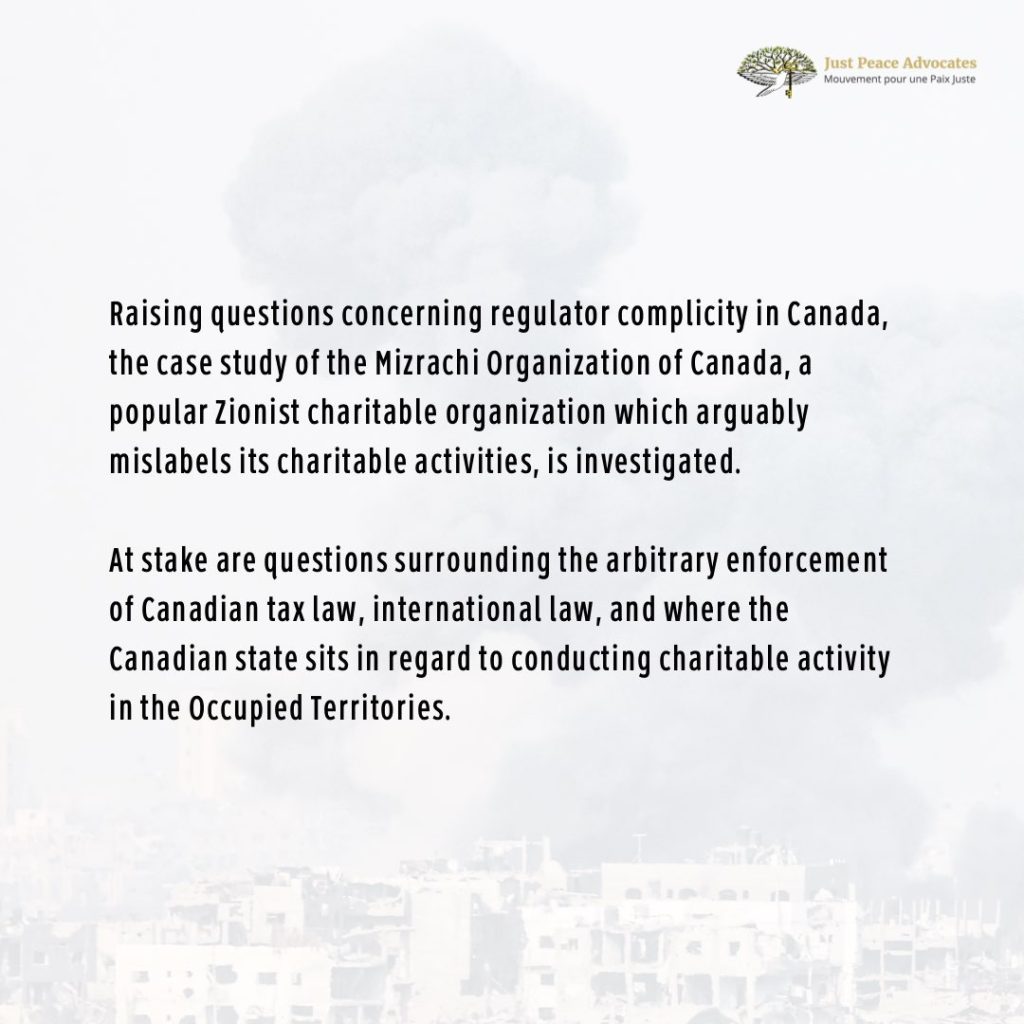
Also, see:
International Cash Conduits and Real Estate Empires: A Case Study in Canadian Philanthropic Crime
Miles Howe mhowe@brocku.ca and Paul Sylvestre
Published by Journal of White Collar and Corporate Crime
Research article
First published online November 8, 2022
Abstract
We analyze an instance of philanthropic law-breaking by a group of Canadian charities, who funnelled millions in tax-exempt funds to foreign recipients. Analyzing 20 years of tax data, we identify a pattern of regulatory violation we are calling the burner charity phenomenon. We track a chronological sequence of organizational behaviour characterized by hibernation, growth, and abandonment, across three linked burner charities. Backstopping burner charities, we show, is a network of public and private foundations. We argue that the purpose of burner charities is to enable foundations to transfer funds to foreign agents while remaining shielded from Canadian law. Combining insights from white collar crime and a Zemiology, we conclude by considering the multi-faceted dimensions of harm associated with burner charities.
Read at:
https://journals.sagepub.com/doi/full/10.1177/2631309X221138974

